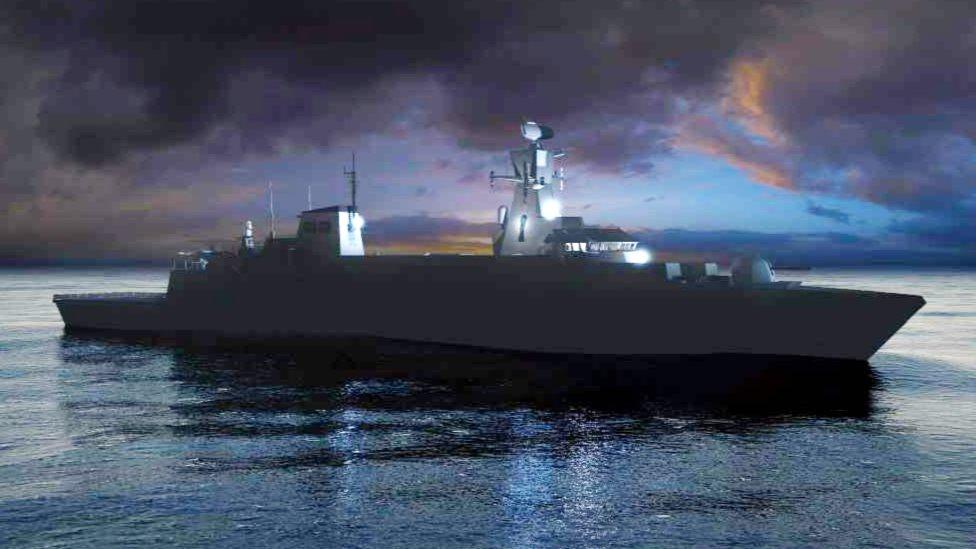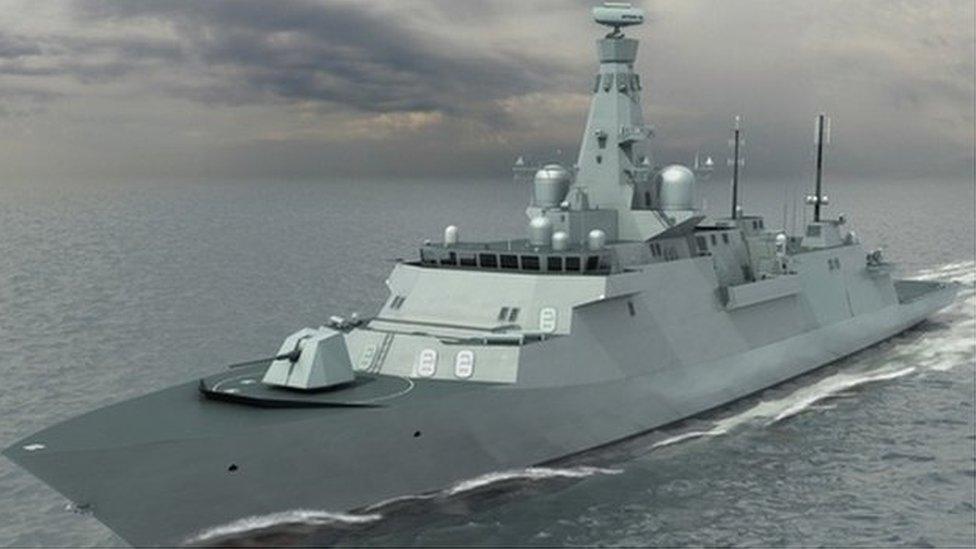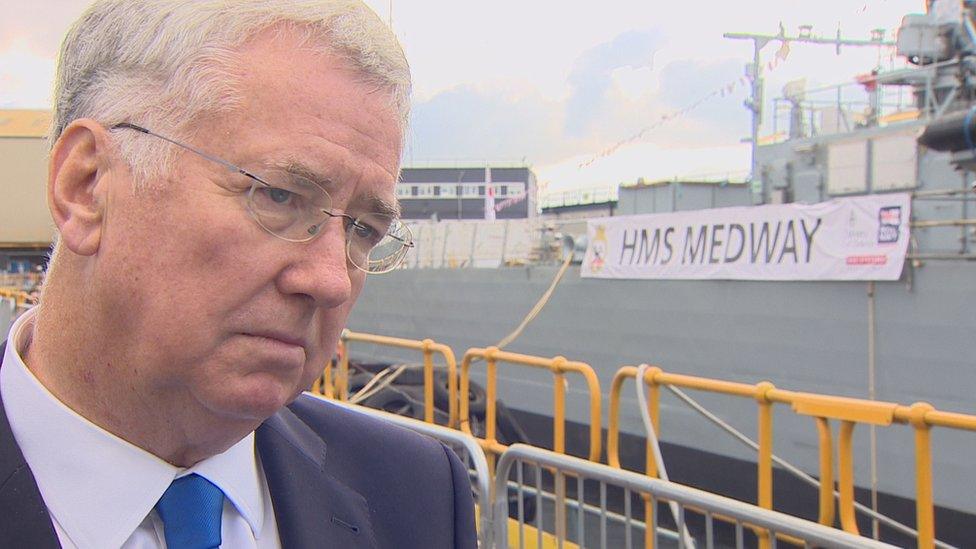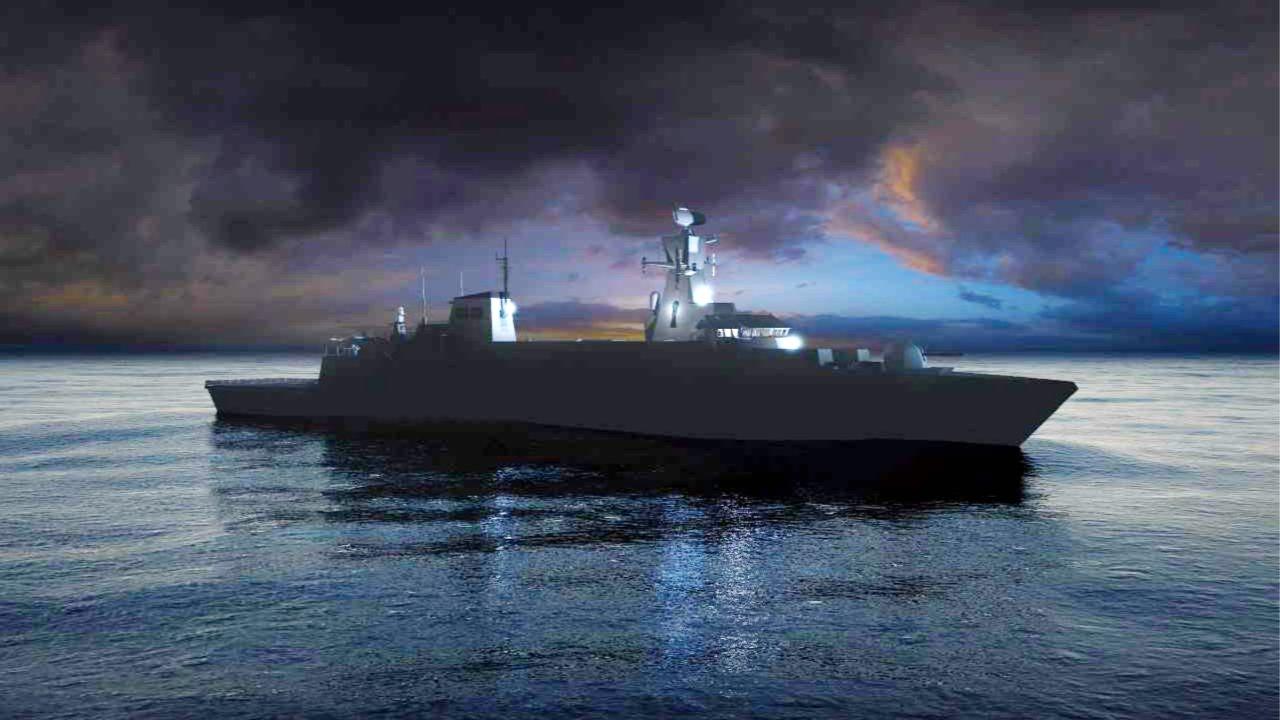Frigate decision 'body blow' for shipyards say union bosses
- Published
- comments

The Type 31e frigate had been intended as a low-cost alternative to other warships
The GMB and Prospect unions have described moves to re-bid work on the Type 31e frigate programme as a "body blow" for the shipbuilding industry.
The UK government has been forced to restart the competition for the shipping construction contracts.
The Ministry of Defence (MoD) said there had been a lack of what it called "compliant bids" to build the warships.
The unions said the programme could have brought work to areas around the UK, including Rosyth and the Clyde.
The MoD intends to re-run the bidding process. Officials have insisted that there would be no delay to the overall shipbuilding programme.
Redundancies
GMB national officer Ross Murdoch said: "This is a real body blow to many shipbuilding workers and their families the length and breadth of the UK.
"Some are already seeing significant redundancies as the carrier programme runs down, while others are in shipyards with a distinct lack of future orders meaning they will see nothing but a gloomy future ahead.
"Depending on which consortium would have been successful, these ships potentially could have brought work in Scotland on the Clyde and at Rosyth, to yards in Devon and Cornwall, to Liverpool, Belfast and potentially other areas."
Richard Hardy from Prospect, which represents more than 700 military and shipbuilding staff in Scotland, said workers would see "nothing but a gloomy future ahead".
He added: "The decision is a body blow to many members who are already seeing significant redundancies as the aircraft carrier programme runs down."

Work on the new Type 26 frigates is under way on the Clyde
The Govan shipyard on the Clyde is building the next generation of anti-submarine warship, the Type 26 frigate.
UK ministers have said that guarantees 20 years of work for thousands of people.
The Labour MP for Glasgow North East, Paul Sweeney, told the BBC's Good Morning Scotland programme that the UK government's policy on the frigate programme has been cast into doubt.
He said: "Simply leaving it up to industry to come up with a price tag of £250m per ship was never going to work.
"They need to give confidence to industry that they are going to go with a consortium and then they will be able to invest with confidence to get the infrastructure right and the processes right to build a ship as cheaply and cost-effectively as possible."
'Wrong-headed approach'
Mr Sweeney added: "It was a wrong-headed approach from the start."
In a statement, the MoD said: "There have been no changes in our plans to procure a first batch of five new Type 31e frigates to grow our Royal Navy.
"We still want the first ship delivered by 2023 and are confident that industry will meet the challenge of providing them for the price tag we've set.
"This is an early contract in a wider procurement process, and we will incorporate the lessons learned and begin again as soon as possible so the programme can continue at pace."
MP Douglas Chapman, the SNP's defence procurement spokesman, said a more collaborative approach was needed from the UK government.
"This cheap as chips approach doesn't cut it," he said. "What you really need is an adult conversation with the industry, with the MoD, and the government.
"This would say 'this is our strategy, this is what we're following and you need to work together'.
"[We need] to make sure that the best value is received for everyone and the Royal Navy ends up with the ships that they actually require to do the job."
- Published20 October 2017

- Published18 October 2017

- Published6 September 2017
